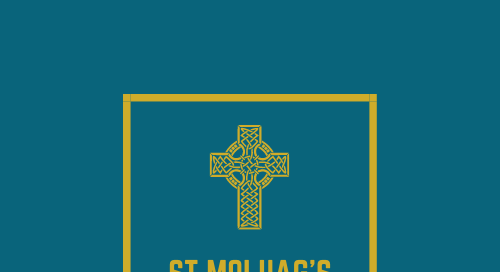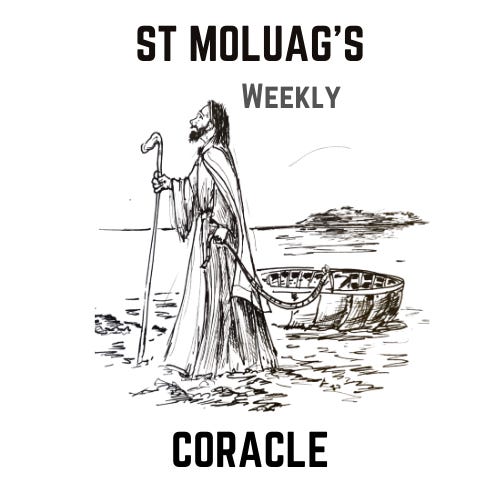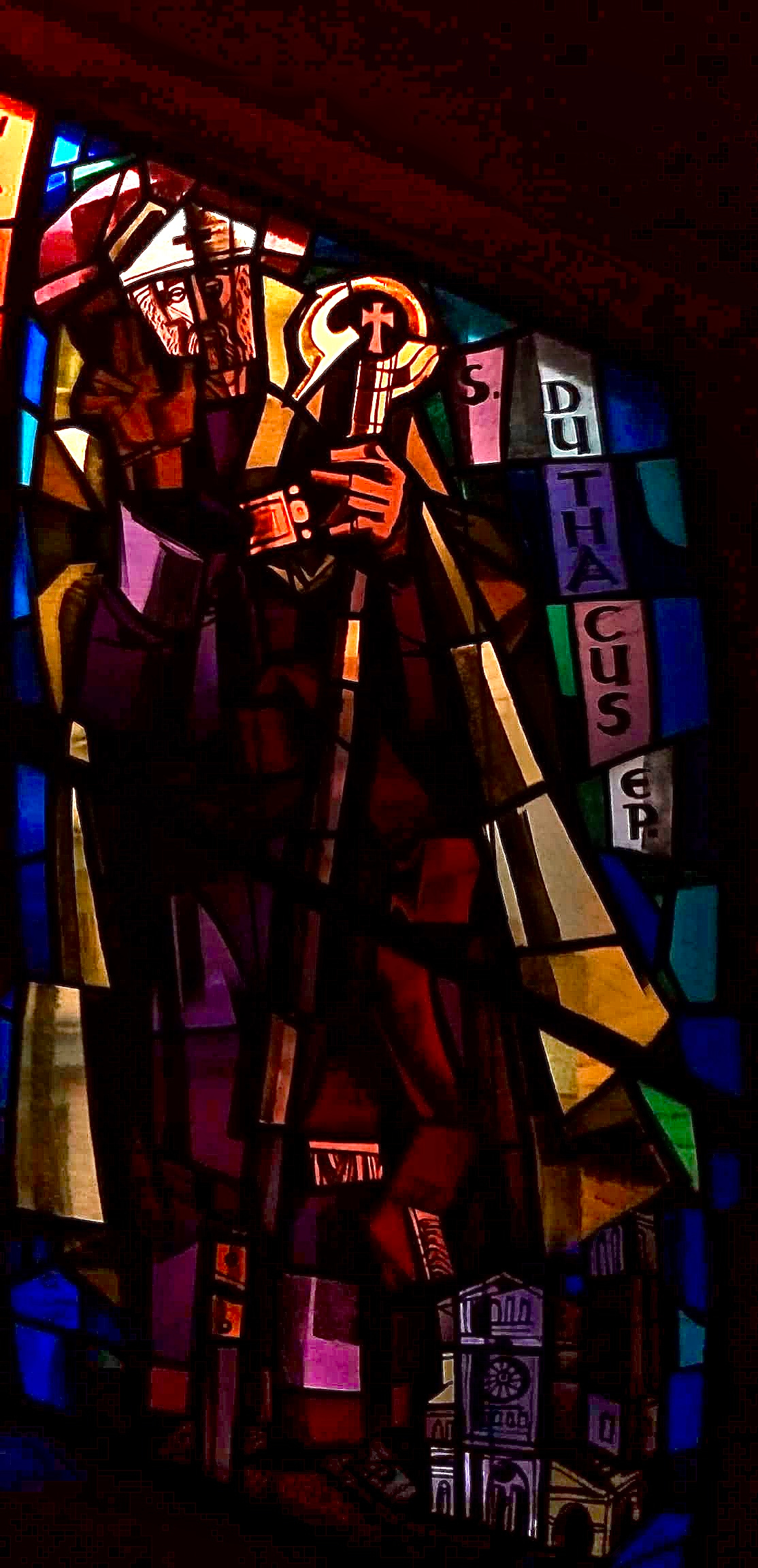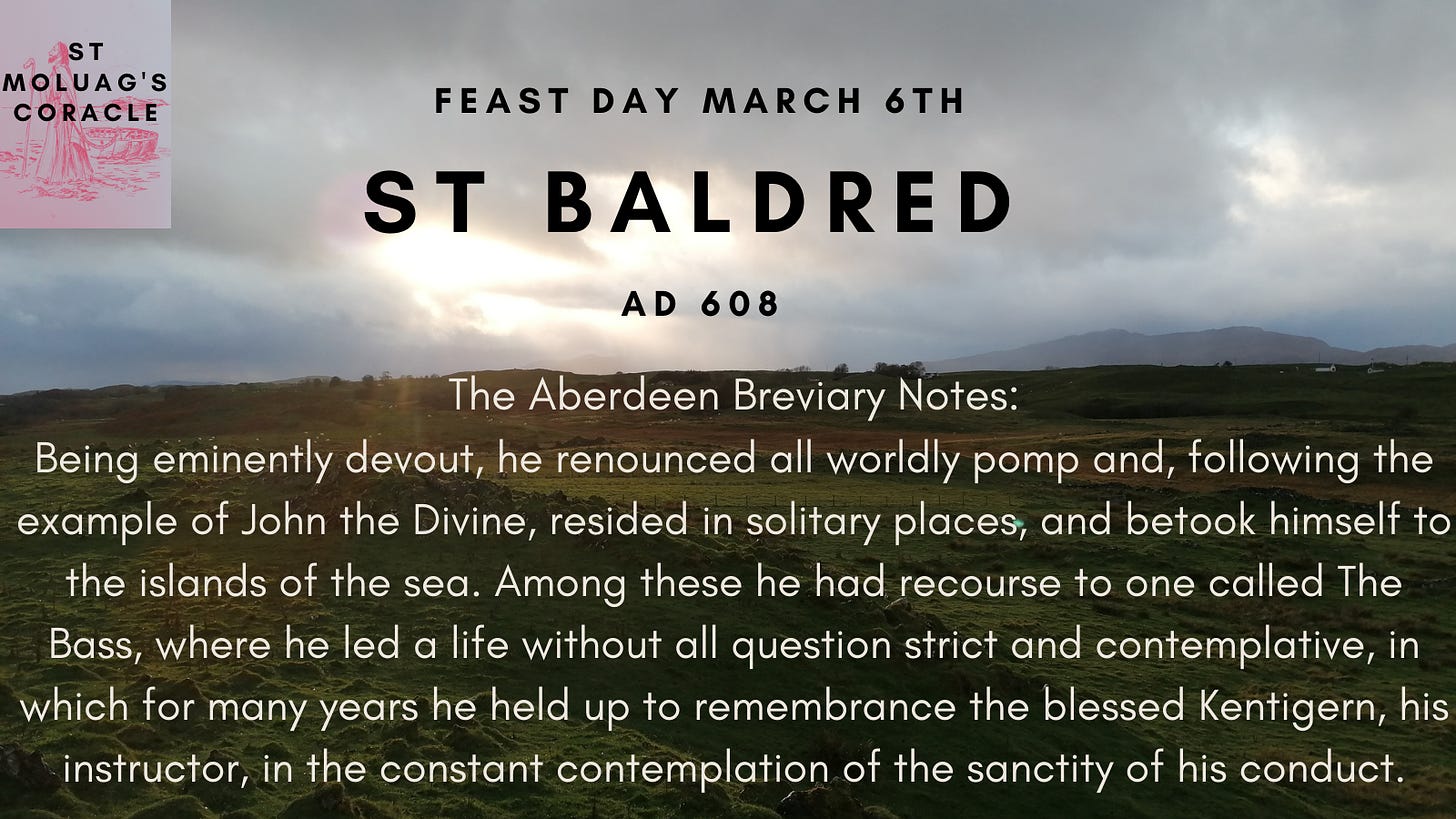Being An Easter People
Fr Damian Martell writes for Lent this week, Jane Coll on the birth of a Highland town, a discussion on Hope with Bishop Hugh Gilbert OSB and we celebrate with Cup winners St Johnstone FC!
During Lent we are provided with a wealth of wonderful but also challenging readings from the Lectionary. Especially with the absence of public worship it is even more important that the Word of God guide and sustain the faithful on their Lenten journey. Our rich Liturgies nourish us abundantly from the two tables, those of the Word and the Eucharist, and at this time of restriction the former continues to provide spiritual sustenance. In this reflection as we go more deeply into this time of Lent, I think that there are two Gospel readings that we can keep returning to, to assist us to check out, to assess how we are progressing on our journey.
On Ash Wednesday the Gospel of Mark (6: 1-6, 16-18), set out for us clearly a structure, the challenges, of Prayer, Fasting, and Almsgiving, Prayer being the most important of these as it this that brings us into relationship with God, not just in this short and passing life but for eternity. As created in the image and likeness of God, we are by nature in this relationship but like any relationship it is important to invest in it, our time and effort, to build it up. Prayer is to be in intimate conversation with God, to give Him praise and thanksgiving, to bring our needs, those of others, to pray for our Church and the World. As Jesus tells us, Prayer need not be complicated and wordy, it is more important for it to be authentic and heart-felt. Its daily practice opens up the way to eternal life.
Fasting can be a more difficult and challenging practice for us and good intentions can fall by the wayside. We often focus on food and drink that we enjoy and find it too difficult to persevere through the whole period. We can though view Fasting in a more global way, to cut back on a number of different things, some of the extras we have in our lives that are not necessary, activities that take up a lot of our time, giving us less time for prayer and for others. This could involve cutting back or even totally abstaining from Social Media, for example . It is an opportunity for us to review our lifestyles to strip back, cut the consumables in our lives, expensive, addictive, time-consuming activities. Such voluntary self-denial is a positive practice, as it sharpens our appetite for God.
Alms-giving, the practice of Charity, to benefit others, helps us to focus beyond the self, to follow the principle of the Common Good. We give to a greater cause, in benefitting those in need in our local communities, in the wider World, who face the daily struggle to meet their basic needs due to the structural injustices in our World. Charity helps us to recognise our common humanity, our unity as children of God, our collective responsibility to assist the needy. All these three practices are indeed essential for us to follow, for they promote growth into the image of God's Son, to imitate Christ, fostering inner transformation that changes our external actions, our perspective and interactions with others, the World around us. They are not mutually exclusive. Prayer and Fasting indeed support and foster concrete acts of love, to think of and pray for others, to care for others, to give to others in Charity.
Prayer increases our love for God, it deepens this core relationship of our lives, Fasting involves a stripping back , leading us to view ourselves and our way of life more authentically, to a greater appreciation of who we are, to identify changes that can benefit us, our relationship to God and others. Almsgiving gives us a more generous love of others. We can then understand these three Lenten practices not so much as challenges, but more positively as three 'loves', whereby we come closer to God and neighbour, to becoming the person God is calling us to be.
Another key text for provide a focus for us is the Gospel from the First Sunday of Lent (Mark 1:12-15). It is a succinct account of temptation of Jesus, with Mark using the images of Angels and Wild Beasts to make a clear contrast and we can consider these as symbols of the forces of Good, of God, and of Evil, of Satan, for indeed Satan means 'Adversary'. Indeed from the time of Creation, beginning with Adam and Eve, Satan has attempted to break the sacred bond between God and Humanity, Creator and Created. The basic temptation for Jesus was to deny who he was and the mission, that as Son, he was given by the Father. He refused to yield however from his ministry of Service and Sacrifice to reveal God's love for Humanity.
We may have read and listened to the various accounts of the temptation of Jesus on numerous occasions but can easily let them pass us by failing to take them to heart applying meaning to our own lives, our present times. We may feel uncomfortable in our modern, rational, relativised World to think in terms of such a stark dichotomy, of Good and Evil. We may view our own personal actions in a more complex and nuanced way. In often rationalising, self-justifying, harmful and negative actions we fail to take personal responsibility, to have the humility to do so. We also lose the opportunity to repent, to make amends, to change course. Lent is indeed a time to become more aware that the forces of Good and Evil do exist, to recognise that we are all capable of both types of acts, that we succumb to temptation in our human weakness, that we make make wrong choices with negative consequences for ourselves, others, and our relationship with God. Acceptance in humility is indeed the first step to Conversion.
The Good News is that we are not left alone with no way out, we can change course in situations where we fail. We sometimes feel we are alone and unsupported, struggling and directional in times of challenge, in the 'Wilderness', but the Lord never abandons us. He is always close and present in our lives. When Jesus emerged from his 'Wilderness' experience, coming up against Evil, the Kingdom of God had triumphed over the false promises of Satan. He declared that victory, 'This is the time of fulfilment. The Kingdom of God is at hand. Repent, and believe in the Gospel”. This was the declaration of God's victory over Satan, of Good over Evil. We share in this victory if we embrace the reign of God in our lives, really repent from the heart and accept the invitation to Conversion.
Like Adam and Eve however, we are created by God not as slaves but in freedom. Each of us has to make the conscious decision to choose the Good, the right path as revealed to us by Jesus Christ, as Son of God, by his words and through the example of his actions, to embrace the Light over Darkness. As we continue our Lenten journey let us not forego the opportunity, to embrace the three 'loves' of Prayer, Fasting, and Alms-giving, to choose the Good over Evil, the way of God. By taking the Word of God to heart we can be transformed in this Holy Season, to truly become an 'Easter People'.
Fr. Damian Martell SPS | St Mary’s Nairn
St Duthac: Birth of a Highland Town
Jane Coll writes about the birth of the Highland town, Tain, a town formed on the back of the veneration of a Saint. It is also this Saints feast day on the 8th of March.
Image from Scots College, Rome.
The Ordinariate of Scotland
Fr Len Black, of the Scottish Catholic Mission of the Ordinariate of Our Lady of Walsingham, talks about the establishment of a way for those in the Anglican Community to join the Catholic Church.
The Stone, the Cup and the Lamb of God
Perthshire might be known to many for a stone which has not sat in the region for many years. The imminent return to Perthshire of the fabled Stone of Destiny notwithstanding, the area had – until very recent years – a common trait with its professional football side. Ruairidh MacLennan dips into some Perthshire history, Scripture and the recent Cup winners St Johnstone.
During the week Fr James Anyaegbu of St Mary’s in Beauly moderated a discussion with Bishop Hugh Gilbert OSB on trusting in God in the most difficult of times. Bishop Hugh really drew out for us important truths to help us as we go through the difficult periods of our lives.
If you have missed any past Coracles you can click here. Most of our past articles are on the roughbounds website as well as talks from Bishop Hugh Gilbert and the Highland Mens Conference.
If you tweet find us on @stmoluagscoracle.
We have also started a GoFundMe page in the hope that if you are getting something out of the newsletters you may wish to contribute to their growth. If you want to go and have a look at our GoFundMe Page click the button below to find out more.
God Bless from Eric and Team









